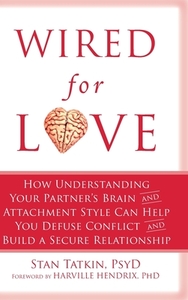Take a photo of a barcode or cover
I’ve yet to apply a lot of the lessons and exercises, but the mindset and backing of neurobiology and psychology, combined with the aim that people are really trying the best they can in life with what they’ve got — internally and otherwise — is pretty lovely.
I do believe there are aspects of “islands” and “waves” I would have liked to have seen defined more, but for the purposes of the book, perhaps aren’t necessary.
I do believe there are aspects of “islands” and “waves” I would have liked to have seen defined more, but for the purposes of the book, perhaps aren’t necessary.
informative
reflective
medium-paced
informative
fast-paced
An enlightening read on so many levels. The core pillars of relationship were so helpful. The emphasis on resolving conflict was especially good. Learned so much from that chapter especially.
I appreciate that this book felt more scholarly and more based on neurobiology / biology in general than “Attached”, and the terms island, wave, and anchor have less baggage than avoidant, anxious and secure I feel like. Some sections were more useful than others, and I didn’t realize how much this would be focused on those already in couples (I would have got the other one he has which is more about single folk and how this relates to dating had I known that). But still, some solid things to try one day when I do have a partner to share things with.
informative
reflective
slow-paced
There was some very interesting stuff in here, but it focused on the couple to the exclusion of all else - really pushed the 'your partner should fulfill all of your needs' model of relationships.
But the discussion of attachment styles, and how different attachment styles relate to each other was useful, and it has given me some potentially useful tools for use in my own relationships.
But the discussion of attachment styles, and how different attachment styles relate to each other was useful, and it has given me some potentially useful tools for use in my own relationships.
Good until the last chapter when he started talking about how you can get autoimmune disease if your relationship isn’t good. Completely ridiculous.
Not great. Not terrible. Not particularly useful. Fascinating enough to get me through the book. The author’s intention behind the language he used was to make this book accessible and useful to the common couple, however in my opinion he undermined his own credibility by renaming academic terms and excluding evidence for his approaches. It reads like some guy got divorced and remarried and this is why he thinks his relationship is working so far. I honestly didn’t feel compelled to put anything he suggested into practice which negates the purpose of reading it.



